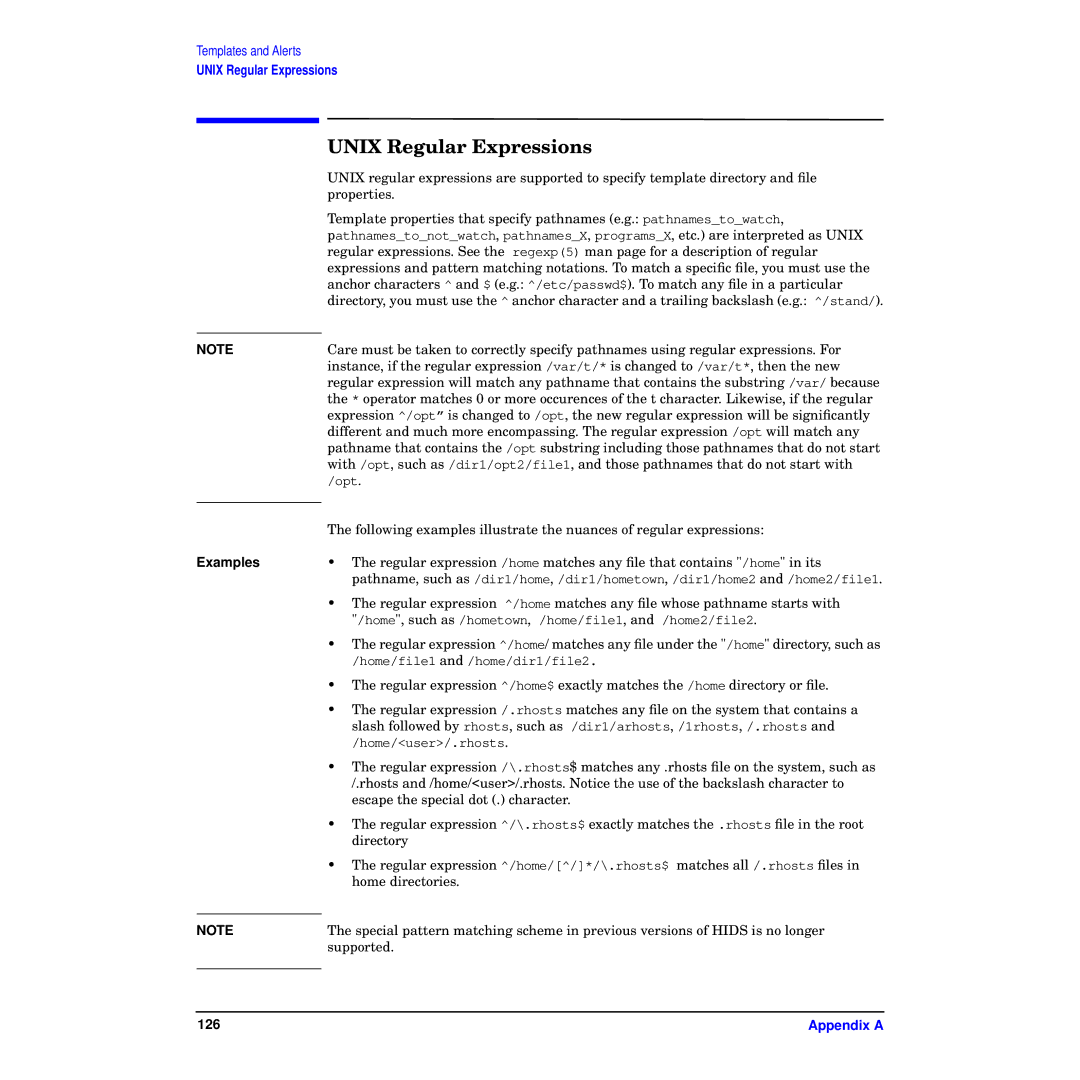
Templates and Alerts
UNIX Regular Expressions
NOTE
Examples
NOTE
UNIX Regular Expressions
UNIX regular expressions are supported to specify template directory and file properties.
Template properties that specify pathnames (e.g.: pathnames_to_watch,
pathnames_to_not_watch, pathnames_X, programs_X, etc.) are interpreted as UNIX regular expressions. See the regexp(5) man page for a description of regular expressions and pattern matching notations. To match a specific file, you must use the anchor characters ^ and $ (e.g.: ^/etc/passwd$). To match any file in a particular directory, you must use the ^ anchor character and a trailing backslash (e.g.: ^/stand/).
Care must be taken to correctly specify pathnames using regular expressions. For instance, if the regular expression /var/t/* is changed to /var/t*, then the new regular expression will match any pathname that contains the substring /var/ because the * operator matches 0 or more occurences of the t character. Likewise, if the regular expression ^/opt” is changed to /opt, the new regular expression will be significantly different and much more encompassing. The regular expression /opt will match any pathname that contains the /opt substring including those pathnames that do not start with /opt, such as /dir1/opt2/file1, and those pathnames that do not start with /opt.
The following examples illustrate the nuances of regular expressions:
•The regular expression /home matches any file that contains "/home" in its pathname, such as /dir1/home, /dir1/hometown, /dir1/home2 and /home2/file1.
•The regular expression ^/home matches any file whose pathname starts with "/home", such as /hometown, /home/file1, and /home2/file2.
•The regular expression ^/home/ matches any file under the "/home" directory, such as
/home/file1 and /home/dir1/file2.
•The regular expression ^/home$ exactly matches the /home directory or file.
•The regular expression /.rhosts matches any file on the system that contains a slash followed by rhosts, such as /dir1/arhosts, /1rhosts, /.rhosts and /home/<user>/.rhosts.
•The regular expression /\.rhosts$ matches any .rhosts file on the system, such as /.rhosts and /home/<user>/.rhosts. Notice the use of the backslash character to escape the special dot (.) character.
•The regular expression ^/\.rhosts$ exactly matches the .rhosts file in the root directory
•The regular expression ^/home/[^/]*/\.rhosts$ matches all /.rhosts files in home directories.
The special pattern matching scheme in previous versions of HIDS is no longer supported.
126 | Appendix A |
